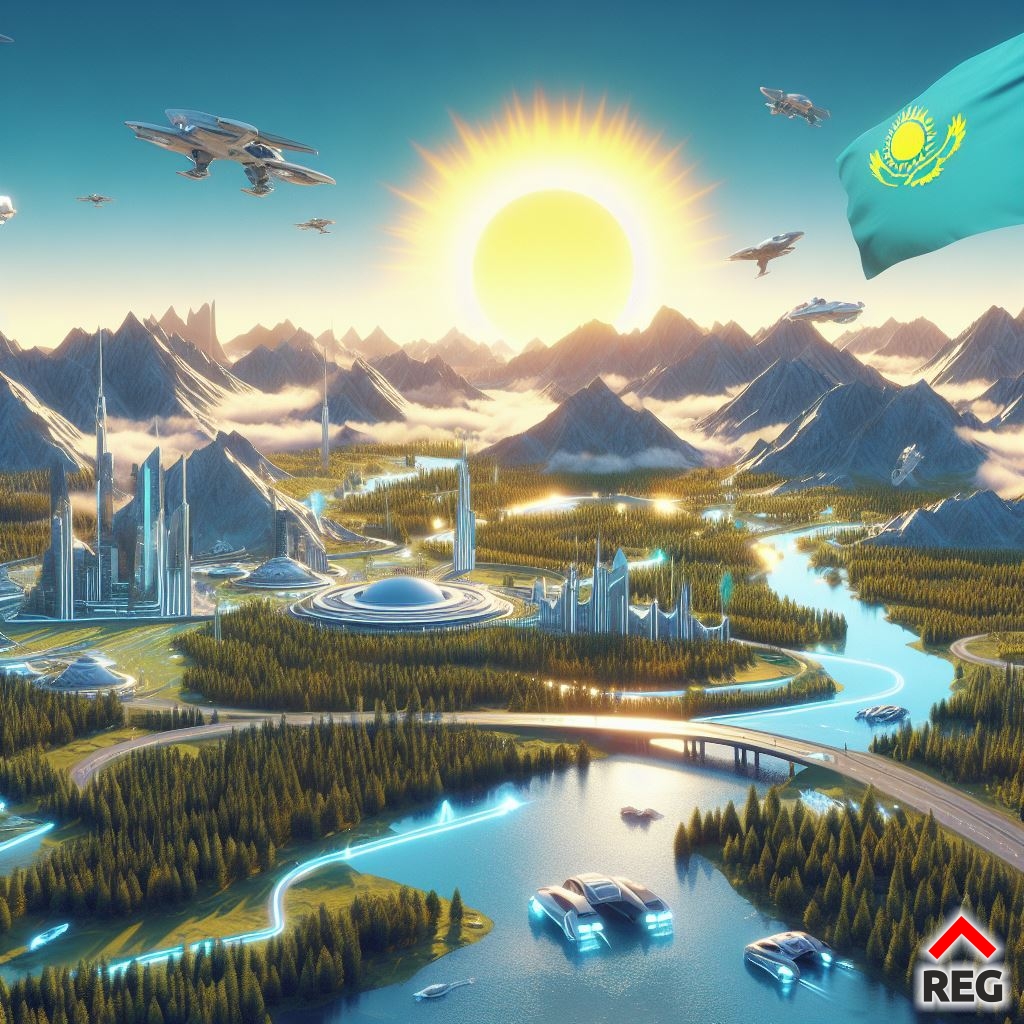Part 1: Modernizing the Ministry of Ecology and Natural Resources in Kazakhstan.
Introduction:
The appointment of Yerlan Nuralievich Nysanbayev as the new Minister of Ecology and Natural Resources of the Republic of Kazakhstan in September 2023 comes at a critical juncture for the nation's environmental and natural resource management.
Kazakhstan is a vast country blessed with abundant natural resources and diverse ecosystems, but it also faces significant environmental challenges.
To address these challenges and ensure sustainable development, it is imperative to adopt modern digital strategies and innovative approaches.

The purpose of this article is to provide Real Estate Group with a comprehensive vision and top 60 tips for Minister Nysanbayev to consider during his tenure.
Part 1: Vision and Framework for Modernization.
1. Digital Transformation: Embrace digital transformation to enhance data collection, analysis, and management in the Ministry. Develop a Digital Ecosystem for Environmental Data.
2. GIS Integration: Utilize Geographic Information Systems (GIS) for mapping and monitoring natural resources and ecosystems.
3. Open Data: Promote transparency by making environmental data accessible to the public through open data initiatives.
4. Predictive Analytics: Implement predictive analytics to anticipate environmental issues and prioritize resources effectively.
5. Stakeholder Engagement: Foster collaboration with NGOs, local communities, and the private sector for sustainable resource management.
6. Capacity Building: Invest in training and skill development for Ministry staff to handle modern technologies effectively.
7. Climate Action: Develop a comprehensive climate action plan aligned with international commitments like the Paris Agreement.
8. Eco-friendly Infrastructure: Encourage the construction of eco-friendly infrastructure to minimize environmental impact.
9. Natural Capital Accounting: Implement Natural Capital Accounting to assess the economic value of ecosystems.
10. Biodiversity Conservation: Strengthen efforts to protect Kazakhstan's unique biodiversity through dedicated programs.
11. Water Resource Management: Modernize water resource management with advanced monitoring and conservation techniques.
12. Renewable Energy: Promote renewable energy sources to reduce greenhouse gas emissions.
13. Environmental Education: Enhance environmental education programs to raise awareness and promote responsible behavior.
14. Circular Economy: Advocate for a circular economy approach to reduce waste and promote resource efficiency.
15. International Cooperation: Collaborate with neighboring countries on transboundary environmental issues.
Part 2: Innovative Digital Strategies.
1. IoT Sensors: Deploy IoT sensors for real-time monitoring of air and water quality.
2. Data Analytics Centers: Establish dedicated data analytics centers to process and interpret environmental data.
3. Blockchain for Transparency: Utilize blockchain technology to enhance transparency in resource management.
4. Drones and Satellites: Use drones and satellites for remote sensing and surveillance of critical areas.
5. Environmental Impact Assessments (EIAs): Enhance the rigor and transparency of EIAs for development projects.
6. Waste Management Apps: Develop mobile apps for citizens to report waste management issues.
7. Eco-labeling: Introduce eco-labeling programs to identify environmentally friendly products.
8. Carbon Markets: Explore the establishment of carbon markets to incentivize emissions reductions.
9. Smart Grids: Implement smart grids for efficient energy distribution.
10. Conservation Technology: Invest in technology for the protection of endangered species.
11. E-waste Recycling: Promote e-waste recycling programs to reduce electronic waste.
12. Green Transportation: Encourage green transportation alternatives, such as electric vehicles.
13. Climate Resilience: Develop strategies to enhance climate resilience in vulnerable regions.
14. Citizen Science: Engage citizens in environmental monitoring through citizen science initiatives.
15. Environmental Enforcement: Strengthen enforcement mechanisms to ensure compliance with environmental regulations.
16. Eco-Tourism: Promote eco-tourism to showcase Kazakhstan's natural beauty and generate revenue.
17. National Parks: Expand and protect national parks and conservation areas.
18. Funding for Innovation: Allocate resources for research and innovation in environmental technologies.
19. Natural Disaster Preparedness: Enhance preparedness and response measures for natural disasters.
20. Green Procurement: Implement green procurement policies within government agencies.
21. Forest Management: Improve forest management practices to combat deforestation.
22. Ocean Conservation: Address ocean conservation through sustainable fisheries management.
23. Renewable Agriculture: Support sustainable and organic agriculture practices.
24. Environmental Indicators: Develop key performance indicators (KPIs) for environmental progress tracking.
25. Eco-friendly Construction Codes: Update building codes to encourage eco-friendly construction.






